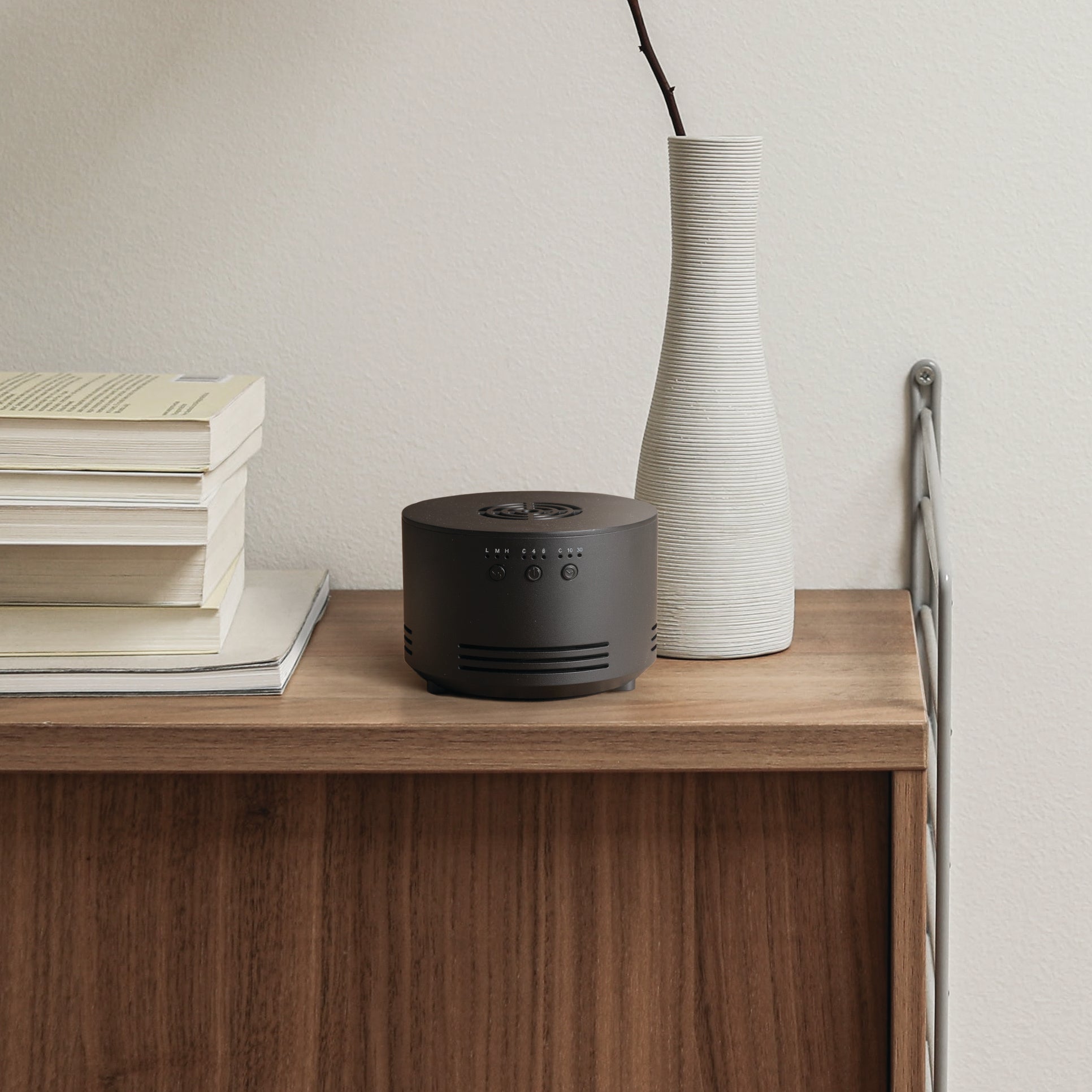Do We Need More Common Scents?
By Pete Foley
Innovation Consultant + Guest Blogger
Scent often gets a bad rap. It is frequently presented as an unnecessary chemical load on our environment, and there is a movement away from the use of products that contain synthetic fragrance, especially in families with young children. However, natural essential oils to not have the same drawbacks as synthetic scenting products. And research is beginning to show that the lack of olfactory stimuli in our living environments may be hurting our health in unexpected ways
Scent Impacts Our Actions. Scent has a bigger impact on our daily lives than many of us realize. It influences our behavior, our mood and quite possibly, our health and wellness. However, because its influence operates largely below our conscious awareness, it is easy to dismiss or forget its important role in our lives.
Why Do Scents affect our Behavior? On the savanna, where our brains evolved, we needed to balance acting quickly and acting correctly in order to survive. If we took too long to act, then we would be at risk of being eaten or missing out on our next meal as opportunity slipped through our fingers. However, if we overreacted and ran every time we thought we saw a predator, or choked down every potential food source we encountered, we would quickly become exhausted, and at some point, poisoned. So we have evolved to manage this trade off.
As modern humans, we can make decisions based on limited data, and are brilliant at completing patterns. We don’t need to see or smell every detail of a charging predator in order to run. However, while we developed short cuts to process individual sensory information, we also gained the ability to augment perception with information drawn from multiple senses at the same time. Confirmatory information from different sources is an effective way to triangulate on a correct answer to a “puzzle”. If it looks like a blackberry, smells like a blackberry, feels like a blackberry and tastes like a blackberry, it is, most likely, a blackberry. However, we don’t have the mental processing power to consciously process multisensory data like this in parallel, and so we often process it unconsciously. Therefore humans, animals whose predominant sense is vision, often process and act on scent, sound and touch without even being aware of it.
As an example, most of us know not to go shopping when we are hungry, as we are likely to buy more food than we need. However, the smell of fresh-baked bread as we enter a supermarket is usually no accident, and is designed to create exactly that kind of hunger-driven buying behavior. Likewise, Realtors know that the smell of fresh-baked cookies at an open house evokes pleasant memories and hope those positive emotions will transfer and be associated with the property being sold. Even if we recognize that we are being somewhat manipulated, it is still difficult to deny the rumbling in our stomach caused by that tempting odor, which in turn influences our subsequent decisions, often without our awareness.
Another excellent example of the power of scent can be found at The Mirage Hotel and Casino in Las Vegas. The Mirage has been pumping the odor of coconut, reminiscent of suntan lotion, into its public spaces for many years. In fact, coconut has actually shown promise as a way to alter cardiovascular activity in response to stressors. It’s therefore unsurprising that the casino would use it in hopes of relaxing guests and making them more likely to gamble, spend money, generally have a good time and want to return for another visit. Today virtually every casino in Vegas has followed The Mirage’s lead, and has its own signature scent. Profit-conscious entities like casinos do this because it works!
While we are still on a learning curve with respect to how scent impacts our behavior, it does appear to add emotional color to our memories, much as Marcel Proust intuitively predicted in his novel À la recherche du temps perdu (In Search of Lost Time). There is also evidence that suggests it may help learning in some situations. Both of these effects have some neurological support, related to the proximity of our olfactory bulb to the amygdala and hippocampus, which are important for emotion and memory, respectively. The mechanism via which scent influences behavior is complex, and likely linked to associative learning. In other words, odors are linked to past experiences, so there are probably few, if any, absolute good or bad scents, but there is enough common human experience that we can usually find scents that impact a majority of people in similar ways.
Scent and Neurological Well-being: Scent may be fundamental to our health and wellness. An example of this comes from some breakthrough work being carried out by Michael Leon and Cynthia Woo, from the Center for Autism Research and Translation at the University of California, Irvine. They have been pioneering the use of scent, coupled with other multisensory stimulation, for the treatment of autism symptoms. Their environmental enrichment therapy involves exposing children to a number of sensory experiences, including smelling essential oils, massage, walking across textured surfaces and immersing their hands in warm water.
The results (a summary of which can be found in detail at https://www.apa.org/pubs/journals/releases/bne-127-4-487.pdf), are impressive. After just 6 months, 42 percent of the boys in the enrichment group had a clinically significant improvement of more than 5 points using the childhood autism scale, compared with 7 percent of the standard care group. Furthermore, IQ, as measured by the Leiter scale, improved by 10 points versus the control group. Parents also saw significant qualitative improvements in language skills and social engagement. As with scents’ apparent influence on memory and learning, there is support for these results from neurological models. Over 90% of people with autism have some type of sensory abnormality, and the areas of the brain which are affected in autism are very similar to the areas affected by auditory loss. Interestingly for people of my generation, similar brain areas are also indicated in the loss of mental function associated with aging.
Prof. Leon is the first to point out that this is a first step, and that there is more work to be done, but I think his work at least begs the question whether we may want more, rather than less scent in our lives. Are we contributing to childhood and senior neurological problems by shying away from even natural environmental scenting, and therefore starving ourselves of olfactory stimuli? If we stepped back in time, we would probably be overwhelmed by the sensory, and especially olfactory, onslaught that our ancestors experienced. And while I’m not advocating a return to the conditions of our cave dwelling ancestors, or even our Renaissance past, maybe there truly is a case for more, rather than less scent in our lives, at least until we better understand its role on development and aging. We are starting to realize that by over-protecting children from bacteria, we may be compromising their future immune health. By avoiding scent in our everyday lives, could we also be compromising their neurological development, or even our own neurological health, as we Baby Boomers sail into our silver years?

Pete Foley is an Innovation Consultant who specializes in applying Psychology, Behavioral Economics and Perceptual Science to business challenges. He blends experience gleaned from 25 years at P&G as a serial innovator, where he published over 100 patents, with 8 years of working with some of the world’s experts in the Behavior Sciences to apply their expertise to business needs. Follow him at on Twitter @foley_pete, visit his blog at www.mindmatters.biz, or contact him at pete.mindmatters@gmail.com.






Leave a comment
This site is protected by hCaptcha and the hCaptcha Privacy Policy and Terms of Service apply.